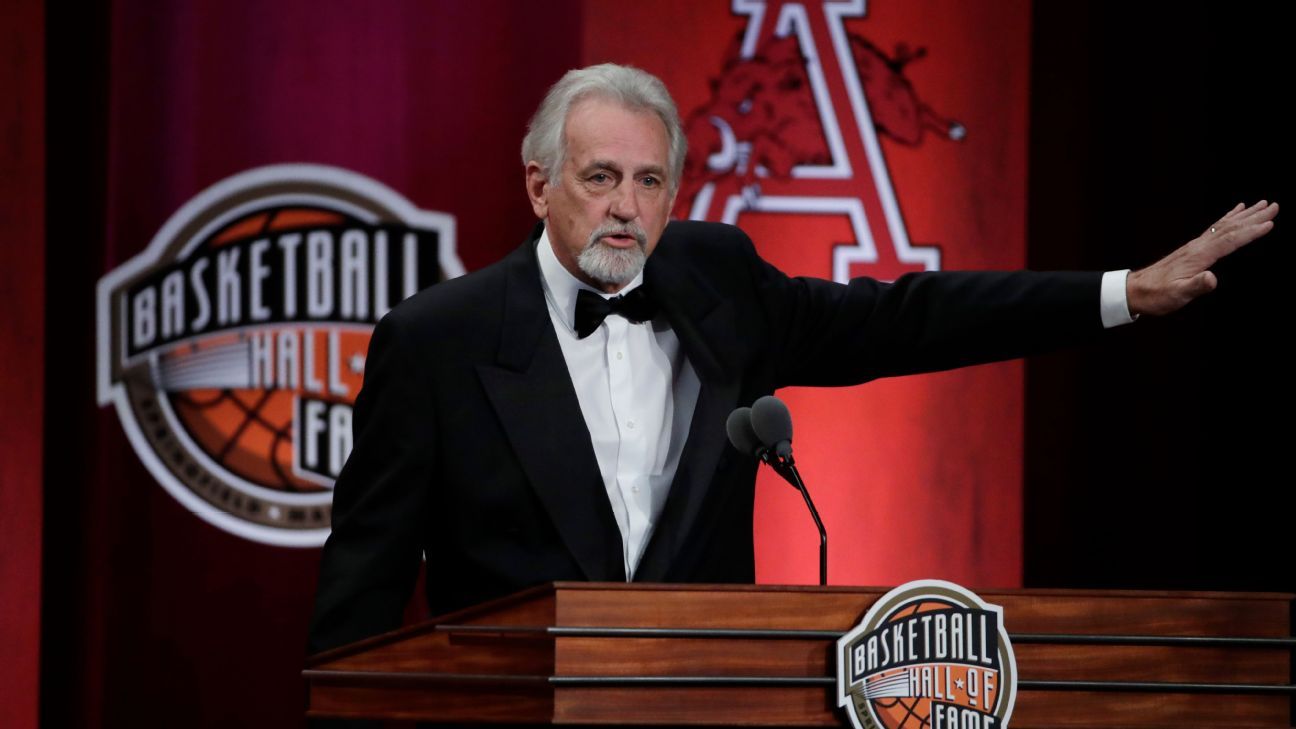
Paul Westphal, a Hall of Fame guard who was a five-time All-Star and a three-time All-NBA first-team selection, has died at the age of 70, the Phoenix Suns announced Saturday.
Westphal had been diagnosed with brain cancer in August 2020.
He grew up in Southern California and played college basketball at USC before being selected 10th overall by the Boston Celtics in the 1972 draft.
Westphal won an NBA title with the Celtics in 1974 in his second season, playing a key role off the bench. But his career really took off when he was traded to Phoenix, where his scoring average more than doubled -- to 20.5 per game -- as he helped lead the Suns to their first NBA Finals appearance in 1976.
"Westy will forever be remembered as a prominent Valley sports legend both on and off the court," Suns managing partner Robert Sarver said in a statement Saturday. "He built an illustrious career as both a player and a coach. His legacy ranks among the most quintessential basketball icons of all time.
"Throughout the past 40 years, Westy has remained a great friend of the organization and as a trusted sounding board and confidant for me. His No. 44 will forever hold its place in our Ring of Honor, enshrined as one of the utmost deserving members."
Westy will not be immortalized for just playing basketball. He will be remembered for how he lived his life, and how he treated others.
Rest In Peace, Westy ?
— Phoenix Suns (@Suns) January 2, 2021
In Game 5 of the 1976 Finals, Westphal made several key plays to push the game -- often called the greatest in playoff history -- to triple overtime. Though the Celtics prevailed in the game and the series, Westphal had announced his arrival as one of the NBA's best guards.
"He was cerebral in his game," Jerry Colangelo said in a statement Saturday. "He was always thinking one step ahead. Even the infamous triple-overtime game in Boston during the Finals series, when he was the one who said 'Call the timeout' -- which forced a free throw but gave us the ball at halfcourt and set up the opportunity to tie the game, which we did. That's thinking right on the spot at the moment."
After five straight All-Star seasons, Westphal was hit with injuries that limited his playing time until 1982-83, when he earned Comeback Player of the Year honors with the New York Knicks. He returned the next season to finish out his playing career with the Suns before turning to coaching.
As an NBA coach, he went 318-279, including a trip to the 1993 Finals and two conference semifinals with the Suns. Westphal also coached the Seattle SuperSonics and Sacramento Kings. He last worked in the NBA as an assistant coach for the Brooklyn Nets from 2014 to 2016.
NBA commissioner Adam Silver praised Westphal as "one of the great all-around players of his era."
"He will be remembered for his generosity, leadership and love for the game, which defined his many years in the NBA," Silver said in a statement. "We extend our deepest condolences to Paul's wife, Cindy, and their family."
I'm so sad to hear that we lost Paul Westphal. I loved watching him play at USC and in Boston and Phoenix! I was blessed to have known him as Coach and as a man of God. He was one of my all time favorite people I've met in this business??God bless Cindy and her family❤️#RIP #44
— Danny Ainge (@danielrainge) January 2, 2021
Rest In Heaven to one of the Greatest Coaches in our game of basketball?? https://t.co/E4JTVEtK1L
— DWade (@DwyaneWade) January 2, 2021
At the college level, Westphal coached at Southwestern Baptist Bible College (now Arizona Christian University), Grand Canyon and Pepperdine.
He was inducted into the Naismith Memorial Hall of Fame in September 2019. His No. 44 is retired by the Suns, as is his No. 25 by USC.
"There may be just a handful of people who have as much influence and significance on the history of the Phoenix Suns," Colangelo said. "All he accomplished as a player and as a coach. Off the court, he was a gentleman, a family man, great moral character. He represented the Suns the way you want every player to represent your franchise."
The Associated Press contributed to this report.















 Phone: (800) 737. 6040
Phone: (800) 737. 6040 Fax: (800) 825 5558
Fax: (800) 825 5558 Website:
Website:  Email:
Email: 






